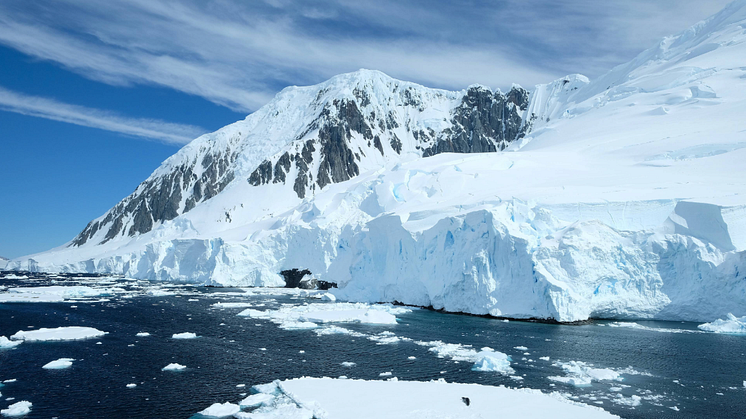
Satellites observe glacier committing “ice piracy”
A glacier in Antarctica is committing “ice piracy” – stealing ice from a neighbour – in a phenomenon that has never been observed in such a short time frame, say scientists.

A glacier in Antarctica is committing “ice piracy” – stealing ice from a neighbour – in a phenomenon that has never been observed in such a short time frame, say scientists.

The team behind a circular economy initiative aimed at tackling plastic pollution, which includes experts from Northumbria University, is celebrating the launch of a toolkit designed to provide practical guidance on setting up recycling schemes across the world.
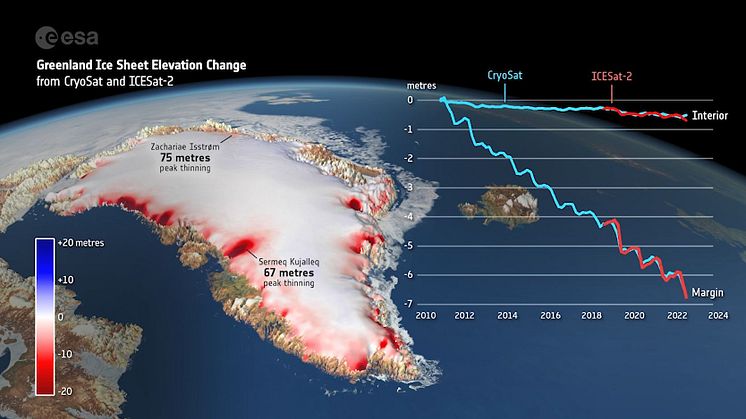
Academics from Northumbria University are part of an international research team which has used data from satellites to track changes in the thickness of the Greenland Ice Sheet.

In response to increasing frequency of extreme heatwaves in Pakistan, an international research initiative has been awarded £2.8 million by UK Research and Innovation (UKRI) to develop energy-efficient cooling technologies that could save lives and reduce environmental impact.
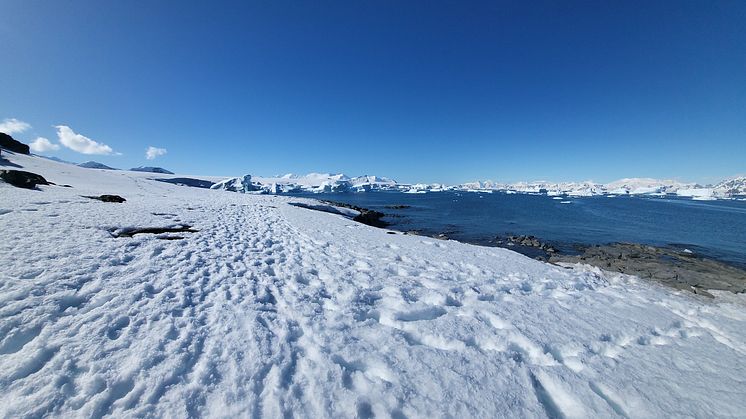
The UK Centre for Polar Observation and Modelling (CPOM), based at Northumbria University, has been awarded over £400,000 by the European Space Agency (ESA) to investigate tipping points in the Earth’s icy regions, known as the cryosphere, with a focus on the Antarctic.
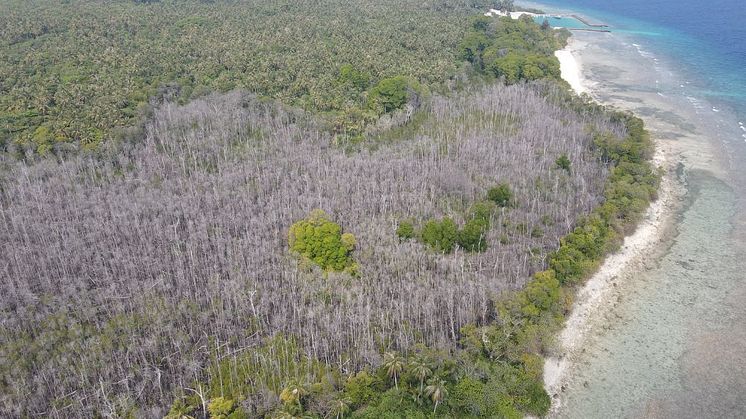
Researchers have found evidence that mangrove forests – which protect tropical and subtropical coastlines – are drowning in the Maldives. Their findings, published today (Tuesday 12 December) in Scientific Reports, indicate that rising sea level and a climate phenomenon known as the Indian Ocean Dipole have led to some Maldivian islands losing over half of their mangrove cover since 2020.
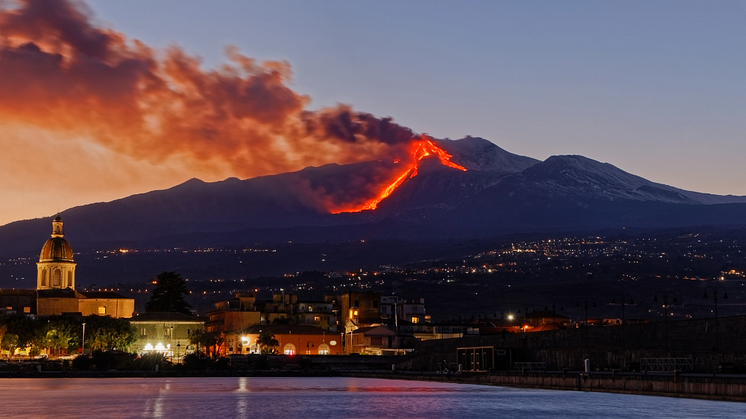
Ancient volcanoes continued to eject carbon dioxide into the atmosphere for millions of years after their eruptions ended, researchers have discovered.

Major differences in the way that Antarctica’s ice sheets formed millions of years ago could be the reason why ice is melting faster today than predicted, especially in West Antarctica, an international research team has discovered. The surprising findings, detailed in unique geological sediment samples from drill cores, provide insights into when and where today’s Antarctic ice sheets formed.

Researchers at Northumbria University have undertaken a project exploring sustainable planning with the coastal communities in North and South Tyneside. The team developed and championed methods to enable communities to co-design how urban redevelopment might best serve their neighbourhoods.

Researchers will develop new ways to monitor carbon emissions from vast swathes of peatland after winning almost half a million pounds to develop new sensors that can be used in remote areas.

A group of nine Northumbria University students travelled to the U.S. Embassy in London to present their climate and environment policy recommendations after months of being mentored by a number of industry experts from the public, private and third sectors.

The British Deputy High Commission in Kolkata, India, has hosted a photography exhibition and the launch of a bilingual photobook showcasing the findings of research on the role of voluntary work in meeting the challenges of climate change.
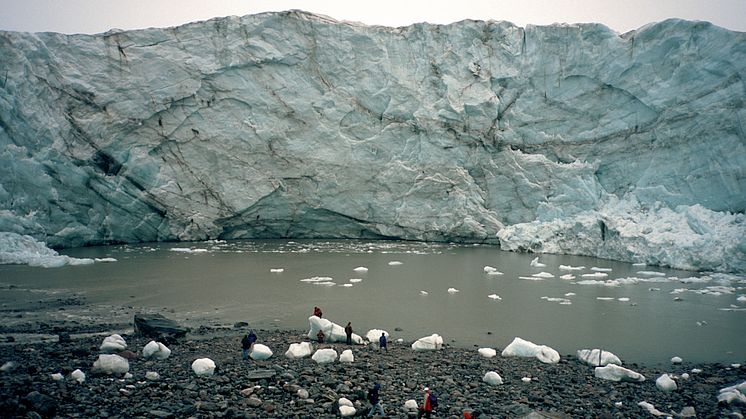
A new research synthesis co-authored by an international group of 29 ice sheet experts states that future rises in sea level could be better estimated by gaining a clearer understanding of the Antarctic and Greenland ice sheets.

New research from the Swedish University of Agricultural Sciences and Northumbria University has determined that as warm-loving species expand their ranges under climate change, Britain’s landscapes are losing their biological uniqueness.

In an article written for The Conversation*, both from Northumbria University, Hilmar Gudmundsson, Professor of Glaciology and Dr Brad Reed, Research Fellow in the Department of Geography and Environmental Sciences, alongside Mattias Green, Professor in Physical Oceanography at Bangor University discuss developments in the activity of the Pine Island glacier in the west Antarctic ice sheet.
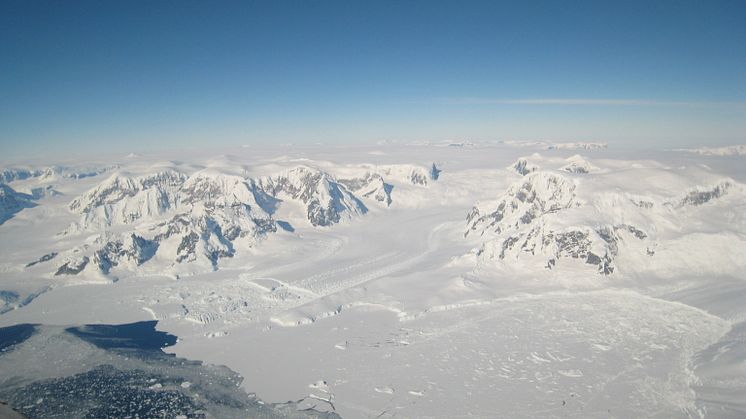
Pine Island Glacier in West Antarctica has gone through an irreversible retreat, passing a tipping point within the last 80 years, researchers have found. The findings, which are published in the influential journal Nature Climate Change, have emerged when world leaders gather in Dubai to debate the impacts of climate change at the COP28 conference.

Pupils from a North East Primary School have collaborated with scientists to design a board game which allows young people to explore the issue of climate change and discuss the actions that can be taken in response to this global challenge.
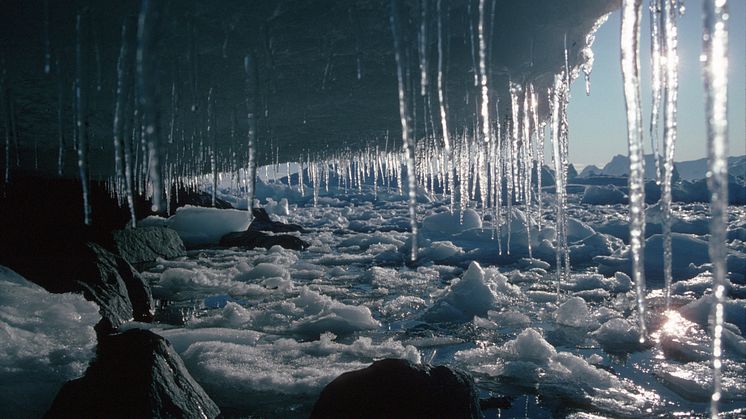
In an article written for the Conversation, Jan De Rydt, Associate Professor of Polar Glaciology and Oceanography at Northumbria University, along with Ocean-Ice Modeller Kaitlin Naughten and Ocean and Ice Scientist Paul Holland, both from the British Antarctic Survey, discuss their recent research findings on the warming of the West Antarctic ice sheet.

Insights from an expert in past climates at Northumbria University have been used to help inform the science and technology behind a much-anticipated new Netflix series which promises to bring the Earth’s oldest creatures back to life.
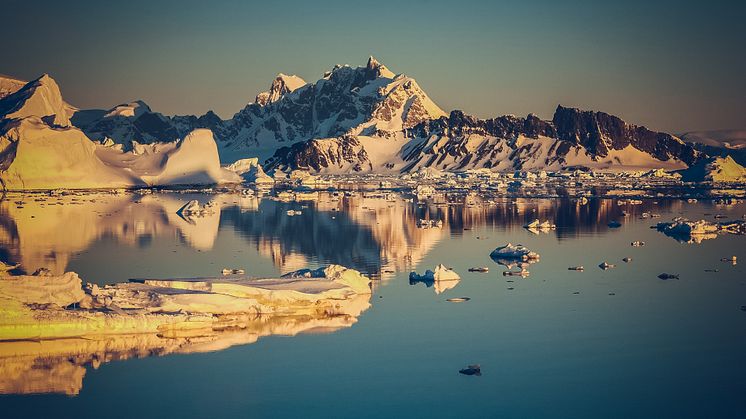
The West Antarctic ice sheet will continue to increase its rate of melting over the rest of the century, no matter how much we reduce fossil fuel use, according to British Antarctic Survey (BAS) research, supported by Northumbria University, and published in the journal Nature Climate Change.